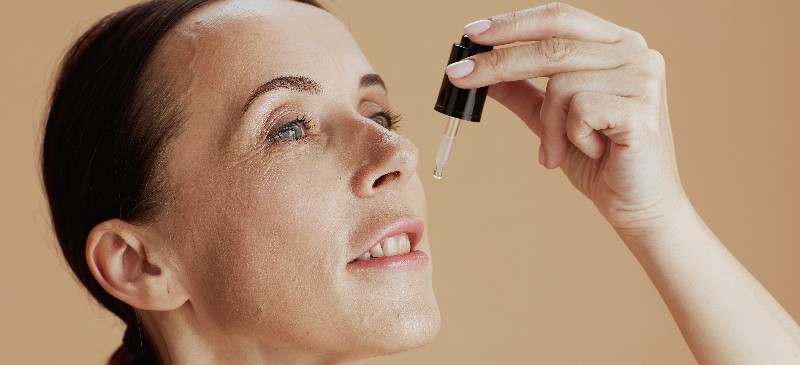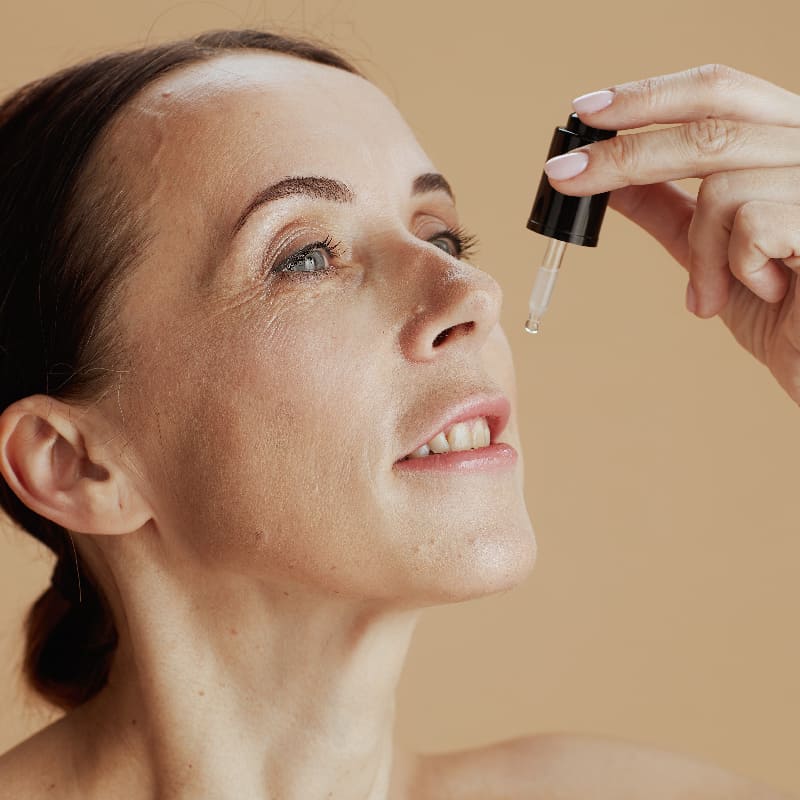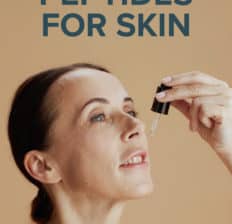This Dr. Axe content is medically reviewed or fact checked to ensure factually accurate information.
With strict editorial sourcing guidelines, we only link to academic research institutions, reputable media sites and, when research is available, medically peer-reviewed studies. Note that the numbers in parentheses (1, 2, etc.) are clickable links to these studies.
The information in our articles is NOT intended to replace a one-on-one relationship with a qualified health care professional and is not intended as medical advice.
This article is based on scientific evidence, written by experts and fact checked by our trained editorial staff. Note that the numbers in parentheses (1, 2, etc.) are clickable links to medically peer-reviewed studies.
Our team includes licensed nutritionists and dietitians, certified health education specialists, as well as certified strength and conditioning specialists, personal trainers and corrective exercise specialists. Our team aims to be not only thorough with its research, but also objective and unbiased.
The information in our articles is NOT intended to replace a one-on-one relationship with a qualified health care professional and is not intended as medical advice.
What Are Peptides? Peptide Benefits for Skin & More
July 21, 2025

Peptides have been getting a lot of attention for their skin-improving effects lately, but did you know that peptide benefits also promote tissue repair, improve muscle strength and lower blood pressure levels?
Supplementing with hydrolyzed collagen peptides and applying copper peptides topically are popular because of their many health benefits.
Whether you’re looking to relieve dry skin in winter, want to stimulate hair growth or need relief from joint pain, using peptide formulas may be an effective natural option.
What are peptides?
Peptides are fragments of protein that are made up of amino acids. When these amino acids link together, they form an amino peptide, and when peptides link together, they form the basis of proteins.
Peptides are the building blocks of collagen and elastin fibers in the skin. One of the most well-known peptide types is the collagen peptide, found in the dermis layer of your skin.
There are hundreds of peptides, which are generally grouped into the following categories:
- dipeptides: made up of two amino acids
- tripeptides: made up of three amino acids
- oligopeptides: made up of two to 2o amino acids
- polypeptides: made up of more than 20 amino acids
Some of the most well-known natural peptide types include:
- Glutathione
- Bradykinin
- Aspartame
- Oxytocin
- Somatostatin
- Endothelin
- Netropsin
- Glucagon
- Insulin
- Growth hormone
You may notice peptides in youth serums or gels because they are known for their ability to improve tissue firmness and elasticity.
Beyond their skin health benefits, peptides play a role in a number of other body functions. They serve as the building blocks of important enzymes and hormones.
They also boost the healing process by promoting tissue repair and stimulating the production of collagen.
Peptides have several important functions, including their ability to:
- serve as precursors of protein
- promote collagen and elastin production
- fight bacterial and fungal infections
- act as hormones
- reduce oxidative stress
- act as constituents to alkaloids
Benefits for skin (and more)
1. Boost skin repair
Peptides boost skin health by improving tissue repair, reducing inflammation and increasing collagen.
According to research published in Clinics in Dermatology, they can be used in the dermatology and skin care industries to improve skin issues, such as inflammation, pigmentation, cell proliferation and migration, and changes in angiogenesis (making new blood vessels).
A review published in Frontiers in Cellular and Infection Microbiology indicated that antimicrobial peptides are used as pharmacological agents to modulate the immune response, promote wound healing and prevent post-surgical adhesions.
2. Reduce lines and wrinkles
Peptides increase the body’s natural production of collagen and elastin. Using them on your skin may leave it looking firmer and smoother.
Fine lines and crow’s feet may improve with anti-aging serums or gels that include peptides and can improve the texture and clarity of your skin too.
A study published in the International Journal of Tissue Reactions relayed that collagen-like peptides act “deeply and intensely on wrinkles.”
Twenty healthy women volunteers, aged 40-62 years old, applied either a gel formula containing collagen-like peptides or a placebo gel around their eyes twice a day for four weeks. The results showed that applying the peptide gel significantly reduced the total surface of wrinkles and decreased the average depth of wrinkles.
3. Improve tissue repair
Peptides improve tissue repair by functioning as signaling molecules that stimulate the body’s natural healing processes. They help promote collagen synthesis by activating fibroblasts, which is essential for rebuilding skin, tendons and joints.
Additionally, certain peptides accelerate cell regeneration by encouraging the migration and growth of skin and connective tissue cells, allowing wounds to close more quickly. Many peptides also have anti-inflammatory properties, which help reduce swelling and prevent chronic inflammation from slowing down recovery.
Furthermore, they can support angiogenesis (the formation of new blood vessels) improving blood flow to injured areas and delivering oxygen and nutrients needed for repair. These combined actions make peptides valuable in skin care, sports injury recovery and post-surgical healing.
According to data published in the International Journal of Molecular Sciences, for instance, a human peptide called GHK (glycyl-L-histidyl-L-lysine) has demonstrated the ability to improve tissue repair for the skin, lung connective tissue, bony tissue, liver and stomach lining.
4. Boost muscle strength
Peptides boost muscle strength by stimulating muscle growth, repair and recovery at the cellular level. Certain ones, such as growth hormone secretagogues like sermorelin and ipamorelin, help increase the body’s natural production of growth hormone, which in turn promotes the development of lean muscle mass.
Peptides also enhance protein synthesis and improve muscle fiber regeneration after exercise or injury, allowing muscles to recover more quickly and grow stronger over time. Additionally, some reduce inflammation and oxidative stress in muscle tissue, further supporting endurance, strength and overall muscle performance.
In a study conducted in Germany, elderly men with degenerative loss of skeletal muscle mass added collagen peptide supplementation and resistance training into their regimes for 12 weeks. Researchers found that the participants had improved lean body mass and muscle strength, as well as decreased fat mass when compared to the placebo group.
5. Fight diabetes
Research has indicated that isolated peptides help reduce blood glucose levels and significantly improve glucose uptake.
Research published in Life Sciences, for instance, suggested that peptides are currently among the most widely investigated potential therapeutic agents for diabetes, and a number of natural and synthetic peptides have proved to cause anti-diabetic effects.
6. Lower cholesterol
Our bodies need healthy levels of cholesterol for the proper production of vitamin D and steroid hormones. However, we all know that too much cholesterol in the blood can lead to some serious health issues, including the formation of plaque in the arteries and even reduced oxygen flow to the heart.
Studies have shown that peptides are able to inhibit lipase activity and bind to bile acids, which allows for its ability to lower cholesterol levels.
7. May reduce blood pressure
A meta-analysis published in Nutrients found that peptides from casein may be effective in blood pressure reduction. Researchers found that this was especially true among Japanese studies compared with European studies.
In addition, further research has found that peptides in food can lower blood pressure, and they’ve even been studied as a hypertension treatment.
8. Stimulate hair growth
Studies show that GHK peptide works to stimulate hair follicles and accelerate hair growth. When copper peptide is applied topically, for example, researchers have found that it works to repair cells, reduce inflammation, suppress free radicals, increase hair follicle size and improve hair transplant success.
9. Aid healthy management
Peptides can support metabolic signaling that aids weight management by enhancing satiety and muscle repair. They do this primarily by regulating appetite, slowing gastric emptying and improving metabolic function through hormone signaling pathways.
For instance, GLP-1 receptor agonist peptides such as semaglutide mimic a naturally occurring gut hormone to enhance satiety, reduce energy intake and lower blood glucose, resulting in significant weight loss in adults with obesity or type 2 diabetes, even when paired with lifestyle interventions.
A randomized, controlled trial involving nearly 2,000 adults with overweight or obesity but without diabetes was conducted. Participants received once-weekly subcutaneous semaglutide (2.4 mg) plus lifestyle counseling, compared to placebo plus lifestyle counseling.
Over 68 weeks, those in the semaglutide group lost an average of 14.9 percent of their baseline body weight, versus just 2.4 percent in the control group, with the treatment effect yielding a 12.4 percent greater reduction in body weight compared to placebo.
These results demonstrate that peptide-based therapies can significantly support healthy management through meaningful, sustained weight loss, improved appetite control and favorable metabolic outcomes.
10. Strengthen bones
Peptides strengthen bones by supporting bone formation, increasing collagen production and enhancing mineral absorption. Collagen peptides, in particular, provide the amino acids needed to build the collagen matrix that forms the structural foundation of bones. This matrix helps bind calcium and other minerals, giving bones their strength and flexibility.
Additionally, certain peptides can stimulate osteoblast activity (the cells responsible for building new bone) while also reducing the breakdown of bone tissue. Over time, this leads to improved bone density and reduced risk of fractures, making peptides a beneficial supplement for bone health, especially in aging populations or those with osteoporosis.
A randomized, clinical trial in humans evaluated the peptide teriparatide (a synthetic parathyroid hormone fragment) for its effectiveness in accelerating bone fracture repair. Patients with distal radial fractures treated with daily teriparatide healed faster and developed a more robust callus compared to placebo, indicating enhanced soft tissue and bone regeneration in humans.
While outcomes such as grip strength and pain scores didn’t significantly differ, the treatment shortened healing time and improved callus quality.
11. Support testosterone levels
Peptides support testosterone levels by enhancing the body’s natural hormone production pathways. Certain peptides (e.g., sermorelin, growth-hormone boosters) may enhance hormone levels that support testosterone production.
For instance, specialized peptides, like growth hormone secretagogues or mitochondrial-targeting sequences, stimulate Leydig cells in the testes to produce more testosterone via the hypothalamic-pituitary-gonadal axis.
Certain gut-derived peptides (such as GLP‑1 analogs) indirectly elevate testosterone by reducing body fat, improving insulin sensitivity and lowering aromatase activity, which preserves testosterone.
A recent human study presented at the Endocrine Society meeting found that obese men treated with GLP‑1 receptor agonists, including semaglutide, dulaglutide or tirzepatide, experienced a rise in normal testosterone levels from 53 percent to 77 percent over 18 months (closely correlated with weight loss), demonstrating how peptide-based therapies can effectively support and restore healthy testosterone production.
12. Slow aging
Through collagen support, anti‑inflammatory effects, antioxidant defense and cellular repair, peptides contribute to slowing aging processes. More specifically, they can slow aging by reducing cellular senescence and rejuvenating tissue at the molecular level.
One example is Pep 14, a synthetic senotherapeutic peptide identified through screening in human-derived skin cells. In a study using human skin tissue models (including ex vivo skin samples), Pep 14 reduced markers of cellular aging, promoted DNA repair, decreased inflammation, increased cellular renewal and collagen expression, and led to a reduction in the biological age of skin tissue by an average of 2.6 years after just five days of topical treatment.
This demonstrates that peptides can modulate pathways associated with aging, supporting tissue resilience, structural integrity, and visible rejuvenation, making them promising agents in slowing the aging process of skin and potentially other tissues.
Copper peptide vs. collagen peptides
Copper peptides (GHK-Cu) are often touted as the best type of peptide for skin health. They are found naturally in our bodies and made up of the element copper with three amino acids.
Copper peptides are known for their ability to promote the production of collagen, elastin and glycosaminoglycans, a family of carbohydrates that support the maintenance of collagen. Formulas containing copper peptides are typically created for topical uses to boost skin health.
Collagen peptides are often found in protein powders or supplements that are meant to be ingested. When collagen undergoes a process called hydrolyzation, this involves the breakdown of individual hydrolyzed collagen peptides in order to maximize absorption by the body.
Simply put, reducing the size and molecular weight of peptides allows for better absorption so they can be utilized by the body.
Supplements containing collagen peptides also go by other names, including hydrolyzed collagen and collagen hydrolysate. Really, all of these types of protein powders or supplements are the same. They undergo the same process in order to increase absorption.
Peptides vs. proteins
Peptides and proteins are both chains of amino acids but differ in length and function:
- Peptides are short chains (typically two to 50 amino acids), making them smaller, easier to absorb, and often used as signaling molecules like hormones and growth factors.
- Proteins are long chains (hundreds to thousands of amino acids) that fold into complex structures to perform roles such as enzymes, structural support, transport and immune function.
- The smaller size of peptides allows for better absorption through the gut or skin and quicker entry into the bloodstream, supporting targeted functions like collagen synthesis, immune signaling and muscle repair.
Peptide therapy
Peptide therapy utilizes specific bioactive peptides (natural or synthetic) for therapeutic benefits. Designed to mimic or enhance natural peptides, they bind to receptors and modulate pathways like hormone release, tissue repair, metabolism or immune activity.
Common peptides and their benefits:
- Collagen peptides (e.g., GHK-Cu, Matrixyl): Improve skin elasticity and hydration, reduce fine lines, and support wound healing.
- BPC-157 and growth hormone secretagogues (e.g., Sermorelin): Support muscle repair, recovery, tissue regeneration and lean mass growth.
- Semaglutide (a GLP‑1 peptide drug): Helps with appetite control, weight loss and improved metabolism.
- Thymosin Alpha‑1: Enhances T-cell production and boosts immune defense.
- PT‑141 (Bremelanotide): Stimulates sexual desire via central nervous system action.
Advantages include targeted action, efficient absorption and a low risk of side effects due to their optimized design.
Challenges and safety considerations:
- Many require injection or advanced delivery systems (microneedles, patches) due to degradation in the digestive system.
- Not all peptides are FDA-approved. Evidence ranges from promising to preliminary. Consulting a provider is essential.
Sources
You can get peptides from various supplements and food sources.
Peptide supplements
- Collagen peptide powders (e.g., bovine, marine, multi-source): Hydrolyzed for improved absorption to support skin, joints, bones and hair.
- Amino-acid-derived supplements: BPC‑157, thymosin alpha‑1, AOD 9604, PT‑141 are typically available by prescription or through clinics.
Peptide-rich foods
- Animal-based: Eggs, dairy (milk, yogurt, cheese), meat, fish and bone broth contain natural peptides and amino acids for peptide production.
- Plant-based: Legumes (beans, lentils, chickpeas), soy, oats, quinoa, nuts and seeds (pumpkin, chia, almonds) contain protein precursors and bioactive peptides.
- Hydrolyzed protein foods: Enzyme-digested or fermented products, both natural and fortified, boost bioavailability.
How to use
Bioactive peptides are found naturally in plants, animals, fungi and microbes. They are released from proteins during digestion, with the help of proteolytic enzymes.
Peptides are also released during food processing, when proteins are cooked, fermented or ripened.
One of the best ways to get more is by consuming collagen-rich foods, like bone broth, or adding a collagen protein powder to your daily regime. The collagen peptides you get from these sources help improve skin, plus support the health of your hair, muscles, joints, heart and gut too.
When it comes to using copper peptides topically for skin health, GHK-Cu is often used as an ingredient in youth serums and creams. Peptides for skin work best when applied and left to absorb, like a serum or moisturizer, not a face wash.
The most effective topicals are said to include a combination of peptides, antioxidants and other skin-restoring compounds.
Risks and side effects
Using peptides topically to improve skin health is likely safe. When using them for cosmetic purposes, be sure to purchase a product made by a reputable company, and read the ingredients carefully.
If you are consuming collagen peptides, be aware that some types of collagen are made from common food allergens, like shellfish and eggs. If you have food allergies, read the ingredients on collagen products carefully before using them.
Antimicrobial peptides, also called AMPs, are sometimes used to speed up the wound-healing process. There isn’t enough research to determine the efficacy and safety of these types of therapeutic agents.
Be sure to consult your healthcare professional before using AMPs.
While many peptides are considered safe when used appropriately, potential side effects can vary depending on the type, dosage and method of administration. Common side effects may include:
- Injection site reactions (redness, swelling, pain)
- Headaches or dizziness
- Water retention or bloating
- Fatigue or sleep disturbances
- Hormonal imbalances (if affecting endocrine function)
- Increased hunger (especially with growth hormone-related peptides)
Rarely, misuse or unregulated peptides may lead to more serious effects, such as insulin resistance or elevated IGF-1 levels. It’s important to consult a healthcare professional before using peptides, especially therapeutic or injectable forms.
Frequently asked questions
What is the difference between peptides and proteins?
Peptides are short amino acid chains (50 or fewer), quicker to absorb and act as signaling agents. Proteins are longer chains (hundreds) that serve structural, enzymatic and transport roles.
Are peptide supplements effective?
Evidence suggests collagen peptides can benefit skin elasticity, joint comfort and musculoskeletal health, especially when used regularly alongside supporting nutrients (like vitamin C). Results vary, and more large-scale studies are needed.
Is peptide therapy safe?
It’s generally well-tolerated with fewer side effects. However, peptide therapy may require injections, has varying regulatory approval and should be managed under medical guidance.
Can food provide enough peptides?
Yes, eating a balanced diet rich in protein from both animal and plant sources (e.g., eggs, fish, legumes, dairy, bone broth) furnishes amino acids and bioactive peptides to support health.
Who should use peptide therapy?
Individuals targeting specific health goals (like skin aging reversal, muscle recovery, immune support, weight loss or hormone optimization) may benefit. Always assess with a healthcare professional.
How do you maximize peptide benefits?
Combine peptide intake (via diet, supplements or therapy) with vitamin C, minerals (zinc, copper), proper hydration, sun protection and exercise to enhance collagen synthesis and overall health.
Are peptides steroids?
No, peptides are not steroids. They are short chains of amino acids that act as signaling molecules in the body, influencing processes like hormone release, tissue repair and metabolism.
Steroids, on the other hand, are lipid-based compounds derived from cholesterol and often function as hormones, such as testosterone or cortisol. While both can affect hormone levels and performance, they differ significantly in structure, mechanism and regulation.
Final thoughts
- Peptides are fragments of protein that are made up of amino acids. When these amino acids link together, they form an amino peptide, and when peptides link together, they form the basis of proteins.
- They are well-known for their ability to boost skin and hair health. They can also be ingested, usually in the form of collagen powder or supplements, to boost muscle strength and improve tissue repair.
- In addition to cosmetic purposes, research indicates that peptide benefits may include fighting type 2 diabetes, reducing blood pressure and lowering cholesterol levels.
- Peptide serums, creams and powders are available online and in many health food or beauty stores. Be sure to purchase a product from a trustworthy company, and read the ingredient list carefully for potential allergens.












